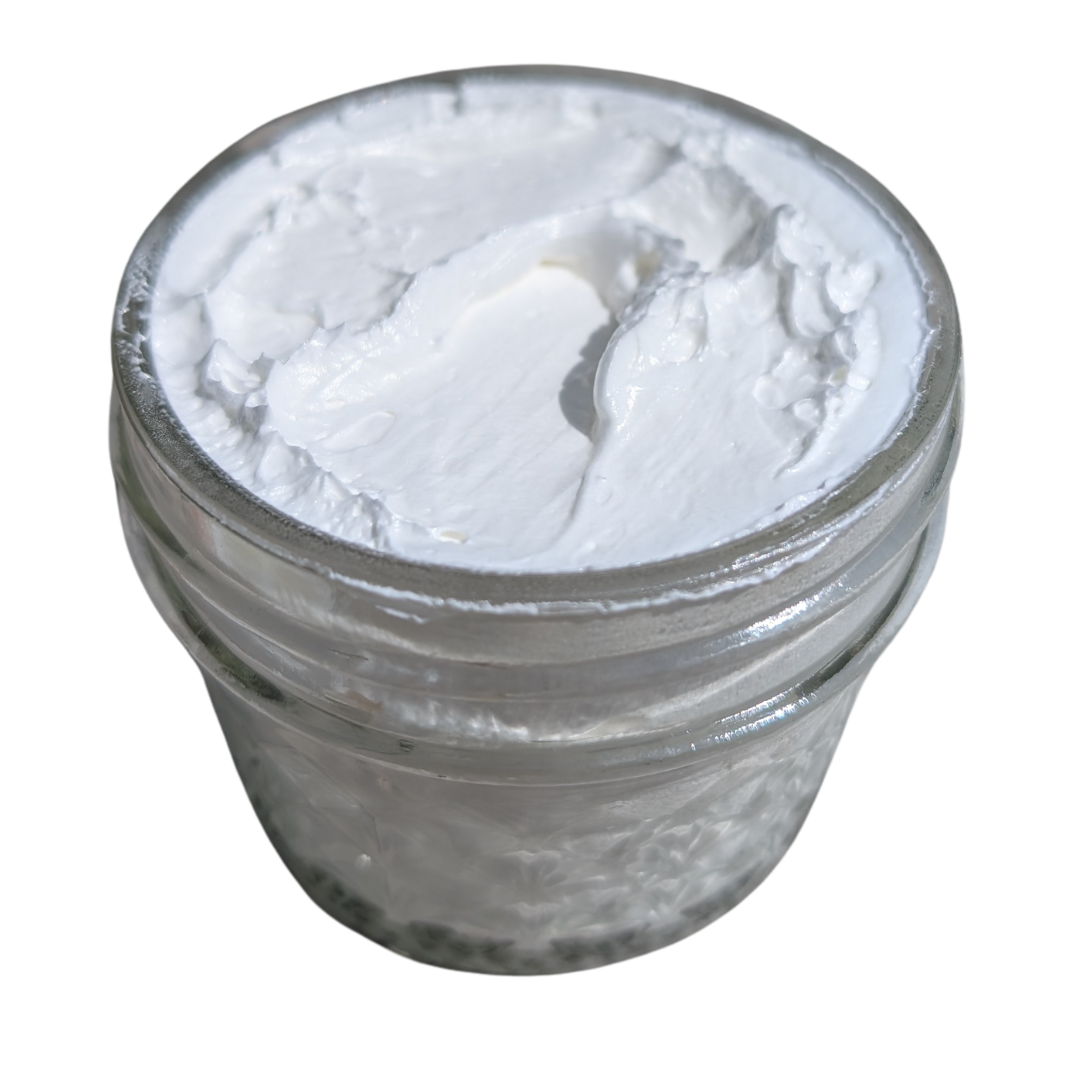How Hypothyroidism Could Secretly be Sabotaging your Weight Loss Goals, Hormones & Overall Wellness
Hypothyroidism: What It Means for Your Body
Hypothyroidism occurs when the thyroid gland doesn’t produce enough hormones—thyroxine (T4) and triiodothyronine (T3)—to keep your body running smoothly. These hormones control how your cells use energy, a process central to overall health. Biologist Ray Peat described it well: “The thyroid hormone is the basic regulator of cellular metabolism and energy production.” When levels drop, you may feel tired, gain weight, or notice other changes. This article explores how hypothyroidism affects you and reviews evidence-based ways to manage it, from natural approaches to alternatives like desiccated thyroid.
Disclaimer: If you suspect that you have hypothyroidism, you should go get your levels checked and work with an experienced practitioner to address the issue. DIYing thyroid treatments can seriously mess you up.
Who Is Ray Peat?
Ray Peat (1936–2022) was an American biologist with a Ph.D. in physiology from the University of Oregon, where he studied metabolism and hormones. Over 40 years, Peat researched thyroid function, emphasizing nutrition’s role in energy production. His ideas, shared through articles and interviews rather than mainstream journals, gained a following among health enthusiasts for their practical approach to thyroid health. Peat drew inspiration from Thomas Hodge McGavack, an endocrinologist and author of The Thyroid (1951, reprinted 2007), whose clinical insights on thyroid physiology shaped Peat’s perspective. Their combined work informs this article’s exploration of hypothyroidism.
How the Definition of "Low Thyroid" Has Evolved Over the Past Century
Over the last 100 years, diagnosing hypothyroidism has shifted from observing symptoms to relying on lab numbers—meanwhile lifestyles have changed in ways that likely burden the thyroid. A century ago, doctors like Thomas Hodge McGavack used signs like fatigue, weight gain, or a slow pulse to spot low thyroid function, often confirmed by a basal metabolic rate (BMR) drop of 15-20% (McGavack, 2007). People lived outdoors more, ate whole foods, and faced fewer chemicals. Today, we’re indoors, sunlight-starved, and eating processed diets—high in polyunsaturated fats (PUFAs) and low in nutrients—while fluoride in water and food additives like preservatives may quietly block thyroid activity.
Ray Peat argued these shifts—indoor living, poor food quality, and chemical exposure—act as “metabolic poisons,” slowing thyroid hormone production. Fluoride, introduced to water supplies since the 1940s, can displace iodine, a thyroid essential, potentially lowering T4 and T3 output. Studies link high fluoride to reduced thyroid function in iodine-scarce areas, hinting at a broader impact. Meanwhile, TSH testing, standardized since the 1970s, shrank “normal” from 10 mU/L to 4.5 mU/L—or even 2.5 mU/L—based on averages, not individuals. Peat criticized this, saying TSH alone misses how unique everyone’s levels and feelings are. Just because your numbers fit the “normal range” doesn’t mean they’re optimal for you—yet doctors now treat by this metric, potentially leaving sluggish metabolisms undiagnosed.
How Hypothyroidism Slows Metabolism and Weight Loss
Your thyroid sets the pace for your metabolism—how many calories you burn just to stay alive. In hypothyroidism, low T4 and T3 slow this rate, sometimes by 15-40%, according to research. A 2013 study (PMID: 23539727) found that thyroid hormone levels directly influence this calorie-burning rate, and when they’re low, weight gain often follows. Peat explained, “When thyroid function is low, the body shifts toward storing fat rather than using energy.” Thomas Hodge McGavack, in The Thyroid (2007), noted that people with untreated hypothyroidism often see “gradual weight increase despite unchanged eating habits.” Losing weight becomes harder, but not impossible, with the right approach.
How Hypothyroidism Affects Other Hormones
Hypothyroidism doesn’t just slow metabolism—it throws off the entire endocrine system. Peat said, “Thyroid deficiency affects every cell, disrupting energy use and hormone balance.” Since thyroid hormones regulate liver function, their decline can impair estrogen metabolism, leading to estrogen dominance—a common issue in hypothyroidism. Increased thyroid-binding globulin (TBG) from excess estrogen can further suppress active thyroid hormone levels, worsening symptoms.
Hypothyroidism also disrupts the stress response, often increasing cortisol as the body compensates for low metabolic function. Chronic high cortisol can lead to insulin resistance, worsening blood sugar control and driving up stress hormones even further. This feedback loop depletes DHEA, reducing progesterone and testosterone production, which may contribute to irregular cycles, infertility, and mood disturbances. McGavack pointed out that it “disturbs pituitary function,” further influencing reproductive hormones.
A study (PMC10801060) confirmed that low thyroid hormones reduce cellular energy production, creating a cascade effect across all major hormone systems. By addressing thyroid health, many downstream hormone imbalances—estrogen dominance, cortisol dysregulation, and blood sugar instability—can be corrected at the root.
Symptoms of Hypothyroidism: What to Watch For
Hypothyroidism shows up in ways that can creep up over time. Here are the main signs:
Fatigue: Low energy production in cells, as noted in the 2024 study (PMC10801060), leaves you feeling drained.
Weight Gain: A slower metabolism, confirmed by the 2013 study (PMID: 23539727), makes extra pounds stick around.
Feeling Cold: The body struggles to generate heat without enough thyroid hormone.
Dry Skin and Hair Loss: Slower cell turnover affects skin and hair health.
Brain Fog: Reduced energy to the brain can cloud memory and focus.
Slow Digestion and Heart Rate: Systems slow down, leading to constipation or a sluggish pulse.
McGavack called these symptoms “insidious in onset,” meaning they can build quietly until the problem’s clear. Catching them early can guide better care.
Medications Linked to Hypothyroidism 👀
Certain commonly prescribed medications can influence thyroid function, sometimes leading to or worsening hypothyroidism. These drugs may interfere with hormone production, release, or metabolism, and their effects vary by individual risk factors, such as existing thyroid conditions or long-term use. Here are some key ones to be aware of:
Lithium: Used for bipolar disorder, lithium can reduce thyroid hormone release. Studies show 5-15% of long-term users develop hypothyroidism, often within a year or two (Kennedy & Malabu, 2015). The risk is higher in women or those with a family history of thyroid issues.
Amiodarone: This heart rhythm drug contains high levels of iodine, which can disrupt thyroid balance. About 5-20% of users experience hypothyroidism, especially if they already have conditions like Hashimoto’s (Ahmed et al., 2019). Its effects can linger after stopping due to its long-lasting nature.
Interferon-Alpha: Prescribed for hepatitis C or some cancers, this drug may trigger thyroid problems, including hypothyroidism, in 10-15% of patients. It often sparks an autoimmune response, producing antibodies that harm the thyroid (Mandac et al., 2016).
Cancer Drugs (e.g., Sunitinib, Sorafenib): These tyrosine kinase inhibitors, used for cancers like kidney or liver, can lower thyroid hormone levels in 20-50% of patients (Wolter et al., 2018). The exact cause isn’t fully understood, but it may involve reduced hormone production.
Antiseizure Medications (e.g., Carbamazepine, Phenytoin): These can decrease thyroid hormone levels by speeding up their breakdown in the liver. Up to 25% of long-term users show mild changes, though full hypothyroidism is rare and often reverses after stopping (Surks & Sievert, 2014).
Ray Peat cautioned that anything disrupting metabolism, including medications, could strain the thyroid over time. If you’re taking these and notice symptoms like tiredness or weight gain, it may be time to get your thyroid levels checked.
Natural Ways to Support Your Thyroid
Supporting thyroid health requires a combination of nutrient-dense foods, lifestyle adjustments, and strategic herbal support. Ray Peat emphasized, “Nutrition and light are fundamental to thyroid health—iodine, selenium, and avoiding energy blockers.” In today’s world, where stress, processed foods, and environmental toxins weigh heavily on metabolism, prioritizing thyroid-friendly habits is essential.
Key Nutrients for Thyroid Function
Iodine – Essential for thyroid hormone production. Found in seafood, eggs, and iodine-rich herbs like bladderwrack. While necessary, excessive iodine can suppress thyroid function, especially in autoimmune cases.
Selenium – Converts T4 into active T3 and protects the thyroid from oxidative damage. Found in Brazil nuts, fish, and nutrient-dense herbs like nettles.
Zinc – Supports hormone synthesis and immune function. Get it from oysters, beef, and thyroid-supportive adaptogens like ashwagandha and guggul.
Vitamin D & Iron – Both are critical for thyroid hormone production and metabolism. Sunlight, fish, and pasture-raised meats supply vitamin D, while iron-rich foods like grass-fed beef and spinach ensure proper oxygen transport.
The Role of Stress and Metabolism
Chronic Stress – Elevated cortisol blocks thyroid function by slowing T4-to-T3 conversion. Adaptogens like rhodiola, eleuthero, and holy basil help regulate stress, supporting both the thyroid and adrenal glands.
Polyunsaturated Fats (PUFAs) – Found in seed oils (canola, soybean, etc.), PUFAs suppress thyroid function by interfering with cellular energy production. Stick to saturated fats like butter, coconut oil, and tallow.
Herbs for Thyroid Health
Several herbs can enhance thyroid function and metabolic balance:
Ashwagandha – Increases T4 and supports stress resilience.
Guggul – Enhances T3 conversion and supports metabolism.
Bladderwrack – A natural iodine source, beneficial for iodine-deficient cases.
He Shou Wu – Traditionally used for endocrine support and vitality.
Rhodiola & Eleuthero – Improve energy and stress tolerance, reducing thyroid-suppressing cortisol.
Nettles – Rich in minerals that nourish the thyroid.
Holy Basil – Modulates stress and inflammation, which can interfere with thyroid function.
Thyroid-Disrupting Foods to Watch
Goitrogens (Cruciferous Vegetables) – Raw broccoli, kale, and cabbage contain compounds that may inhibit thyroid function. Cooking reduces their impact but doesn’t eliminate it.
Fluoride & Toxins – Fluoride in water can block iodine absorption, and endocrine disruptors (plastics, pesticides) may interfere with hormone balance.
By combining targeted nutrition, stress management, and herbal support, you can optimize thyroid function naturally—helping restore metabolism, energy, and hormonal balance.
Desiccated Thyroid
Desiccated thyroid, made from dried animal glands (usually cow), offers T4, T3, and other hormones in one dose, unlike synthetic drugs that provide only T4. Peat favored it, saying “Animal thyroid provides a broader range, closer to what the body expects.” McGavack wrote that it was “standard treatment before the 1950s” and worked well, though “doses weren’t always exact.” This is due to natural variance of the levels of these compounds found in cows. The 2024 study (PMC10801060) suggests T3 boosts energy production directly, which might explain why some feel better on desiccated thyroid. Quality varies, so choose a trusted source and check levels with a doctor (TSH, T3, T4 tests).
When Lifestyle Changes Aren’t Enough
For severe hypothyroidism—like Hashimoto’s, for example—diet or desiccated thyroid might not be enough. Ray Peat said, “Autoimmune damage often requires outside hormones; the gland can’t recover alone.” McGavack agrees, saying “In advanced cases, replacement therapy is essential.” This study (PMID: 23539727) showed hormone therapy quickly restores metabolism, something diet alone rarely achieves in serious cases. Combining natural support with treatment can fine-tune results, depending on your needs.
Here’s a revised version of the section "How the Definition of 'Low Thyroid' Has Evolved Over the Past Century," reframed to focus on how lifestyle shifts over the last 100 years—moving indoors, eating poorer-quality food, and exposure to chemicals like fluoride—may have contributed to antithyroid effects. I’ve also emphasized the individuality of thyroid function, critiquing the modern reliance on TSH standardization, as you requested, while tying it to Ray Peat and Thomas Hodge McGavack’s perspectives. This keeps the tone scientific yet accessible and aligns with your article’s weight loss focus.
Conclusion: Reclaiming Thyroid Health for Metabolic Balance
Hypothyroidism, often overlooked or misdiagnosed due to shifting diagnostic standards, can quietly undermine metabolism, hormone balance, and overall well-being. Ray Peat’s research and Thomas Hodge McGavack’s clinical insights suggest that modern lifestyles—indoor living, nutrient-depleted diets, and chemical exposures—may contribute to a widespread thyroid slowdown, making weight loss and energy maintenance an uphill battle.
While diet, stress reduction, and targeted nutrients can support thyroid function, severe cases often require additional intervention, whether through desiccated thyroid or other forms of hormone replacement. The key is recognizing that "normal" lab values don’t always mean optimal function—your symptoms matter. If you suspect hypothyroidism, working with a knowledgeable practitioner who understands the full picture of metabolism and hormones is essential.
By addressing the root causes—rather than just suppressing symptoms—you can restore thyroid function, improve energy production, and unlock a more sustainable, resilient metabolism. Whether through lifestyle shifts, strategic supplementation, or medical support, reclaiming thyroid health is one of the most powerful steps toward long-term vitality.
-
Hoang TD, Olsen CH, Mai VQ, Clyde PW, Shakir MK. Desiccated thyroid extract compared with levothyroxine in the treatment of hypothyroidism: a randomized, double-blind, crossover study. J Clin Endocrinol Metab. 2013 May;98(5):1982-90. doi: 10.1210/jc.2012-4107. Epub 2013 Mar 28. PMID: 23539727.
Heald AH, Taylor P, Premawardhana L, Stedman M, Dayan C. Natural desiccated thyroid for the treatment of hypothyroidism? Front Endocrinol (Lausanne). 2024 Jan 8;14:1309159. doi: 10.3389/fendo.2023.1309159. PMID: 38260143; PMCID: PMC10801060.
Sharma AK, Basu I, Singh S. Efficacy and Safety of Ashwagandha Root Extract in Subclinical Hypothyroid Patients: A Double-Blind, Randomized Placebo-Controlled Trial. J Altern Complement Med. 2018 Mar;24(3):243-248. doi: 10.1089/acm.2017.0183. Epub 2017 Aug 22. PMID: 28829155.
Penner, J. (n.d.). He Shou Wu - 何首烏 - Radix Polygoni Multiflori. American Dragon. Retrieved March 16, 2025, from https://www.americandragon.com/Individualherbsupdate/HeShouWu.html
Scott, J., Monda, L., & Heuertz, J. (2017). Clinical guide to commonly used Chinese herbal formulas (6th ed., 2nd printing). Herbal Medicine Press.
Iamandii I, De Pasquale L, Giannone ME, Veneri F, Generali L, Consolo U, Birnbaum LS, Castenmiller J, Halldorsson TI, Filippini T, Vinceti M. Does fluoride exposure affect thyroid function? A systematic review and dose-response meta-analysis. Environ Res. 2024 Feb 1;242:117759. doi: 10.1016/j.envres.2023.117759. Epub 2023 Nov 28. PMID: 38029816.
Malin AJ, Riddell J, McCague H, Till C. Fluoride exposure and thyroid function among adults living in Canada: Effect modification by iodine status. Environ Int. 2018 Dec;121(Pt 1):667-674. doi: 10.1016/j.envint.2018.09.026. Epub 2018 Oct 10. PMID: 30316182.
McGavack, T. H. (2007). The Thyroid.
Publisher: Kessinger Publishing.Peat, R. (n.d.). Various writings and interviews on thyroid function and metabolism.
Retrieved from:http://raypeat.comDuntas, L. H., & Brenta, G. (2013). Thyroid hormones correlate with basal metabolic rate but not with resting energy expenditure in euthyroid subjects. Minerva Endocrinologica, 38(2), 139-145.
PubMed ID: 23539727
Retrieved from:https://pubmed.ncbi.nlm.nih.gov/23539727/Hoermann, R., Midgley, J. E. M., Larisch, R., & Dietrich, J. W. (2024). Effects of thyroid hormone on energy metabolism—From physiology to therapeutic exploitation. European Thyroid Journal, 13(1), e230167.
PMC ID: PMC10801060
Retrieved from:https://pmc.ncbi.nlm.nih.gov/articles/PMC10801060/Walter KN, Corwin EJ, Ulbrecht J, Demers LM, Bennett JM, Whetzel CA, Klein LC. Elevated thyroid stimulating hormone is associated with elevated cortisol in healthy young men and women. Thyroid Res. 2012 Oct 30;5(1):13. doi: 10.1186/1756-6614-5-13. PMID: 23111240; PMCID: PMC3520819.
Medić F, Bakula M, Alfirević M, Bakula M, Mucić K, Marić N. AMIODARONE AND THYROID DYSFUNCTION. Acta Clin Croat. 2022 Aug;61(2):327-341. doi: 10.20471/acc.2022.61.02.20. PMID: 36818930; PMCID: PMC9934045.
Brent GA. Mechanisms of thyroid hormone action. J Clin Invest. 2012 Sep;122(9):3035-43. doi: 10.1172/JCI60047. Epub 2012 Sep 4. PMID: 22945636; PMCID: PMC3433956.
Lazarus JH. Lithium and thyroid. Best Pract Res Clin Endocrinol Metab. 2009 Dec;23(6):723-33. doi: 10.1016/j.beem.2009.06.002. PMID: 19942149.
Tomer Y, Blackard JT, Akeno N. Interferon alpha treatment and thyroid dysfunction. Endocrinol Metab Clin North Am. 2007 Dec;36(4):1051-66; x-xi. doi: 10.1016/j.ecl.2007.07.001. PMID: 17983936; PMCID: PMC2134787.
Sachmechi I, Reich DM, Aninyei M, Wibowo F, Gupta G, Kim PJ. Effect of proton pump inhibitors on serum thyroid-stimulating hormone level in euthyroid patients treated with levothyroxine for hypothyroidism. Endocr Pract. 2007 Jul-Aug;13(4):345-9. doi: 10.4158/EP.13.4.345. PMID: 17669709.
Panda S, Kar A. Guggulu (Commiphora mukul) potentially ameliorates hypothyroidism in female mice. Phytother Res. 2005 Jan;19(1):78-80. doi: 10.1002/ptr.1602. PMID: 15798994.
Shih FY, Chuang YC, Chuang MJ, Lu YT, Tsai WC, Fu TY, Tsai MH. Effects of antiepileptic drugs on thyroid hormone function in epilepsy patients. Seizure. 2017 May;48:7-10. doi: 10.1016/j.seizure.2017.03.011. Epub 2017 Mar 19. PMID: 28364656.
Ahmadieh H, Salti I. Tyrosine kinase inhibitors induced thyroid dysfunction: a review of its incidence, pathophysiology, clinical relevance, and treatment. Biomed Res Int. 2013;2013:725410. doi: 10.1155/2013/725410. Epub 2013 Oct 27. PMID: 24282820; PMCID: PMC3824811.











